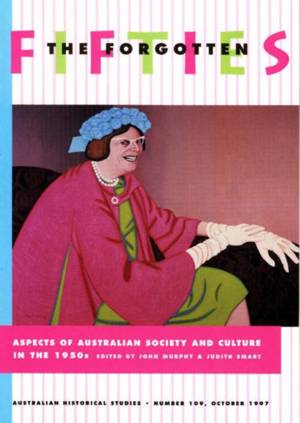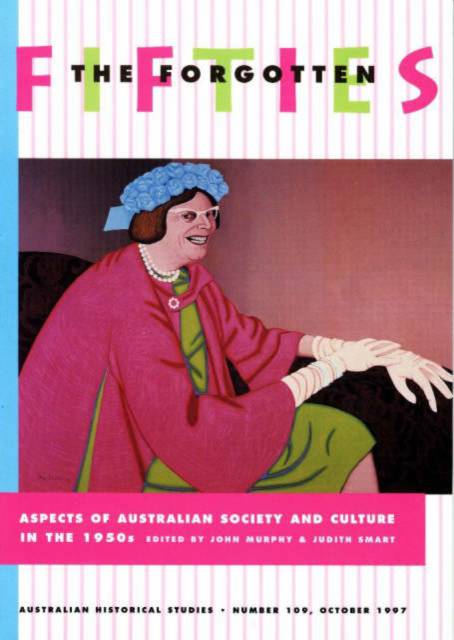
- Afhalen na 1 uur in een winkel met voorraad
- Gratis thuislevering in België vanaf € 30
- Ruim aanbod met 7 miljoen producten
- Afhalen na 1 uur in een winkel met voorraad
- Gratis thuislevering in België vanaf € 30
- Ruim aanbod met 7 miljoen producten
Zoeken
Omschrijving
Some of Australia's leading historians present new perspectives on social and cultural life in the 1950s. The 1950s is usually treated in the popular media as a metaphor for an Australia that was complacent, monocultural, banal and domesticated. On the other hand, historical writing about the decade has long been dominated by accounts of political and foreign policy conflict, the Labor Split, the Cold War and the seemingly endless long summer of Robert Menzies. This collection assembles some of Australia's leading historians to present new perspectives on the 1950s. Focusing on social and cultural themes, they reveal a decade full of contradictions which belie the common, simplistic accounts of the time. Ranging from the education of the young Barry Humphries to the idea of an Australian 'identity' in the lead-up to the 1956 Olympics, these essays also include the personal recollections of three leading historians, providing a lively and critical insight into the Australia of the period. Drawing out themes such as style, sexuality, modernism, the suburbs, travel writing and immigrant 'assimilation', the authors excavate the experience of everyday life and the attitudes that characterised the 1950s. They present a past that-despite having shaped our lives-continues to be disputed in contemporary Australia.
Specificaties
Betrokkenen
- Auteur(s):
- Uitgeverij:
Inhoud
- Aantal bladzijden:
- 226
- Taal:
- Engels
Eigenschappen
- Productcode (EAN):
- 9780522848151
- Verschijningsdatum:
- 9/11/1993
- Uitvoering:
- Paperback
- Formaat:
- Trade paperback (VS)
- Afmetingen:
- 168 mm x 239 mm
- Gewicht:
- 353 g

Alleen bij Standaard Boekhandel
+ 94 punten op je klantenkaart van Standaard Boekhandel
Beoordelingen
We publiceren alleen reviews die voldoen aan de voorwaarden voor reviews. Bekijk onze voorwaarden voor reviews.








